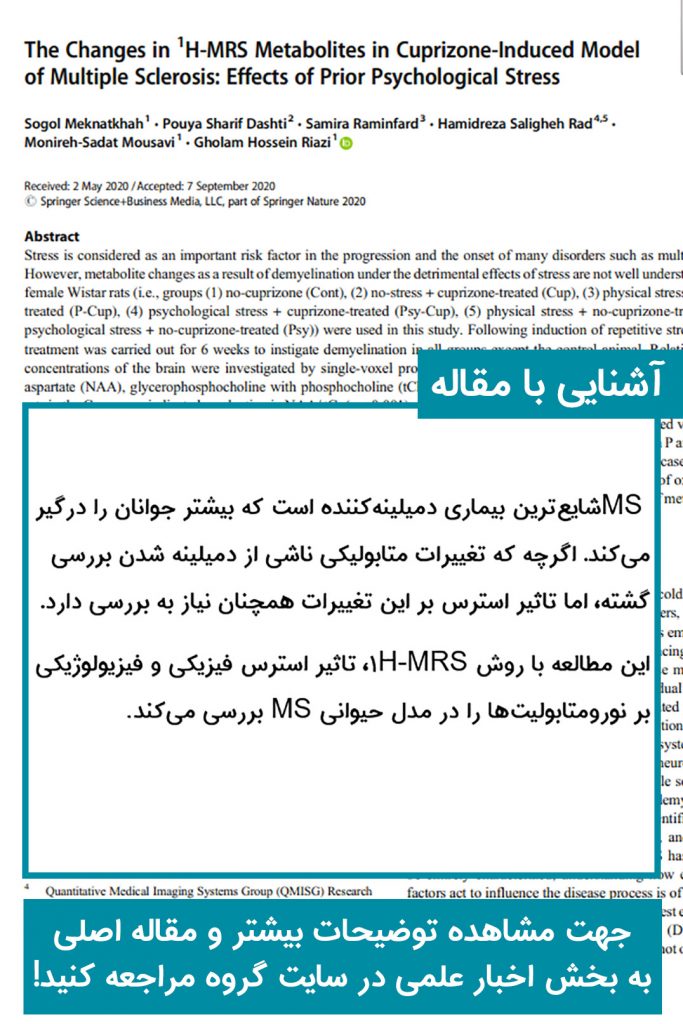
MS is the most frequent demyelinating disease around the world. Considering association of distress and disorders and neurometabolic alterations under stress conditions, this study investigated the association between stress exposure and metabolic alterations in the cuprizone-induced model of MS in rats. Six group of rats were examined with 1H-MRS, experiencing physical and physiological stress. Metabolite alterations were different between stress+ groups and stress- groups; Repetitive distress may cause more inclusive oligodendrocyte death and neuroinflammation leading to higher level of NAA and Cho in stress+ groups.
Complete Article’s link (Click here)
Author: Ms. Mahsa Talebi
